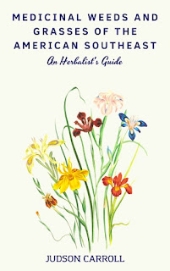
 7
7





"Them that don't know him don't like him and them that do sometimes don't know how to take him, he ain't wrong he's just different and his pride won't let him do the things to make you think he's right" - Ed Bruce (via Waylon and WIllie)
 2
2




Proud member of the mad farmer liberation front.
 3
3




 3
3




Clay Bunch wrote:This one looks awesome. I've got to finish reading herbal medicine for peppers homesteaders and permaculture people before I can get another one!
Do you have a thread where all of your work is listed?
"Them that don't know him don't like him and them that do sometimes don't know how to take him, he ain't wrong he's just different and his pride won't let him do the things to make you think he's right" - Ed Bruce (via Waylon and WIllie)
 5
5




Kathleen Sanderson wrote:Is Kentucky included in 'Southeast'?
"Them that don't know him don't like him and them that do sometimes don't know how to take him, he ain't wrong he's just different and his pride won't let him do the things to make you think he's right" - Ed Bruce (via Waylon and WIllie)
 2
2




Proud member of the mad farmer liberation front.
 5
5




"The only thing...more expensive than education is ignorance."~Ben Franklin
"We can easily forgive a child who is afraid of the dark; the real tragedy of life is when men are afraid of the light." ~ Plato
 4
4




Carla Burke wrote:For anyone who isn't sure whether your area is covered, in Judson's book, keep in mind that plants aren't prone to paying attention to human maps and boundaries. While the plants are often most easily found in a specific region, it doesn't mean you won't find them elsewhere. For example, I'm in Central Missouri - in the region most commonly referred to as 'the midwest', yet I know that the majority of the plants in this book can also be found here. Some are probably less abundant here, but they're here. So, don't limit yourself from this book, simply because you don't live precisely within (the human construct called) the American Southeast.
"Them that don't know him don't like him and them that do sometimes don't know how to take him, he ain't wrong he's just different and his pride won't let him do the things to make you think he's right" - Ed Bruce (via Waylon and WIllie)
 6
6




Judson Carroll wrote:
After all, what decides a weed? Some of the plants listed as weeds are native, and others non-native. Some are labeled “noxious”… as if that really means anything. Those so labeled are considered undesirable by the “experts.” Essentially, a weed is any herbaceous plant that grows without human assistance…. Or, put another way, it is any plant that is growing where someone doesn’t want it. If we plant a bed of lettuce and we find chickweed growing among our lettuces, chickweed would be considered a weed. If we grow chickweed to include in our salads, it is not a weed, regardless the name. If we grow a lawn of ornamental grass and find dandelions, they are considered weeds. If we grow dandelions for food and medicine, they are not.
What is nice about “weeds” is that they often grow in poor soil and in conditions that cultivated vegetables and herbs could not survive. We do not have to till the soil, water or mulch these plants. They are just there every year. We have only to take the time to learn about them, identify them and harvest them. I believe firmly that God has provided these plants for our needs, and it is a very foolish man who will curse such gifts and douse them with dangerous chemicals. A pocket full of plantain leaves is worth far more than a manicured lawn. Our ancestors who gave us these “weeds” must surely dismay our ignorance.
Best serotonin-booster ever: garden time.

|
Normally trees don't drive trucks. Does this tiny ad have a license?
Learn Permaculture through a little hard work
https://wheaton-labs.com/bootcamp
|



